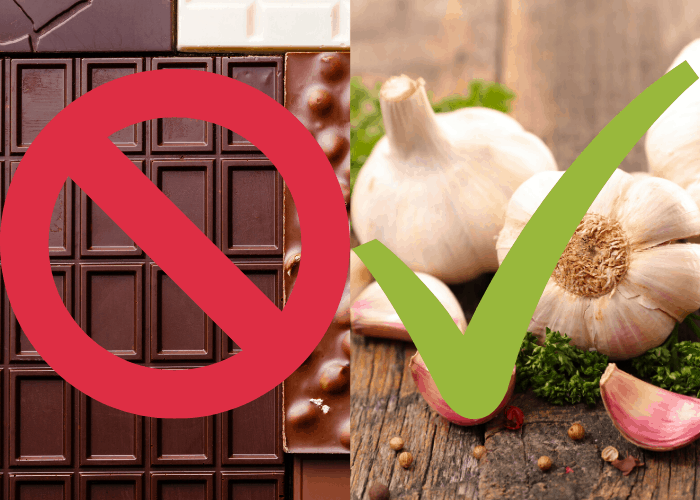In the previous edition of Biophile, my article “Holistic Pet Nutrition”, highlighted the nutritional and medicinal properties of herbs for our companion animals. We could not praise enough the healing and nutritional values that these herbs contain and their extensive mineral wealth. Unfortunately, a few weeks later, a leading Cape Town newspaper published a biased, untruthful and unfair article pertaining to the dangers of onions and garlic in pet food:
“Pet owners warned of ‘toxic’ foostuffs”. They claimed “chocolate, onions and garlic may kill dogs” and “vets have warned that, instead of saving their animals, they could in fact be killing them” All was based on the testimonial of a single dog owner who prepared a home-cooked meal using a recipe from the esteemed author and pet food nutritionist, Margaret Roberts. The vet claimed that her dog contracted “Heinz-body Anaemia” (the thinning of the blood) because she included a composition of onion and garlic in the meal.
However, the Pathologist was unable to confirm this as a matter of certainty and says that” this type of anaemia is difficult to pick up because the blood looks normal”. She based her assumption on previous scientific laboratory testing using garlic and onions. But most importantly, she failed to mention that the possibility of this type of anaemia is dose or quantity related. She does mention, though, that several other foods can cause Heinz-body anaemia as well – turnips, kale, rape, or anything rich in vitamin K”.
She, confirmed for me other possible ingredients, as well: paracetamol, zinc, local anaesthetic, phenythdrazine We have gained access to the exact same source of reference that the pathologist used and which was presented to us by a leading Scientist at the Department of Agricultural Sciences (University of Stellenbosch). I wish to present the findings so that we can all learn from this incident and to which I believe was nothing more than an opportunistic attempt, by the vet, to steer pet owners away from preparing nutritious home-cooked meals and return to the feeding of commercial processed food.
So, the question still stands. Is garlic and onion dangerous for your pets? NO! The most important finding was that it was dose or quantity dependent, “typically involving onion doses exceeding 0.5% of the subject animals body weight”. This means that a 20kg dog would have to consume a minimum of 100gr of onion or garlic (two whole onions or quarter container of garlic) “just to start the Heinz-body process. This grotesque overdose would probably have to be repeated several times on a frequent basis to cause permanent harm”. “And since red blood cells are regenerated quickly from the bone marrow, this overdose would probably have to be repeated several times on a frequent basis to cause permanent harm.”
Also noted was the fact that onions and other garlic relatives were different to your normal dose of garlic. They also categorically state that “small doses of garlic, are probably going to be of great benefit to the overall health of your pet.” GARLIC is a miracle herb and has a powerful natural disinfectant which helps to destroy harmful bacteria in the animals system and helps detoxify the body. It also tones the lymphatic cells and helps purify the bloodstream and intestines. It prevents viruses from multiplying and creates hostile conditions that repel most parasites and strengthens the immune system. In summary, most reasonable pet owners will include only reasonable quantities of garlic.
We have not researched the nutritional values of onion, perse, and may not even recommend the use of onion in pet food, but garlic stands alone and it is a must for every pet. The only exceptions are pets that have an existing Heinz-body anaemia ailment and for puppies under the age of 6 weeks (they should be suckling at that age anyway). Common sense is all that is needed when preparing homecooked meals and the understanding that what is healthy for your children is healthy for your animals.

